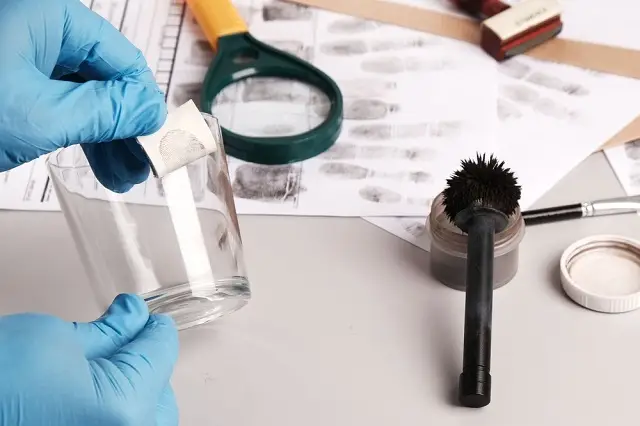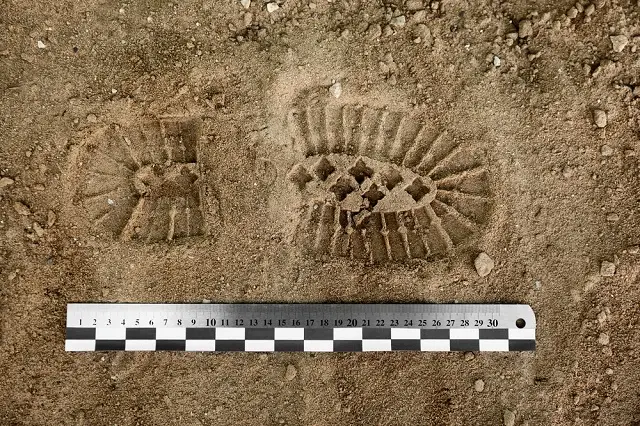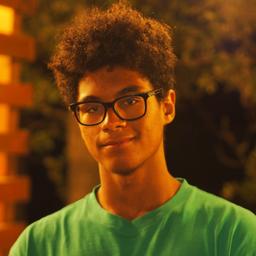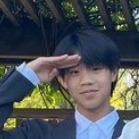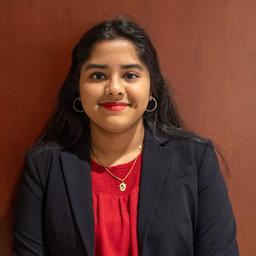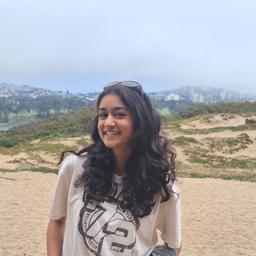Social science research takes various forms, including quantitative surveys, experiments, qualitative interviews, case studies, and observational studies to address different social challenges. Here are some examples:
Community psychologists may use surveys and interviews to explore how online interactions influence well-being, contributing valuable insights for mental health interventions. They would then collaborate with local communities to address mental health disparities.
Sociologists might analyze data on community involvement and crime statistics to inform policies that enhance public safety.
Political scientists might complete a comparative analysis of different voting mechanisms to provide recommendations for improving democratic processes. Governmental agencies also hire political scientists to inform public policies.
Social workers, often equipped with backgrounds in sociology or psychology, provide essential support to individuals and communities facing challenges.
Human rights advocates, informed by political science and international relations, work to address social injustices globally.
Environmental sociologists contribute to more sustainable practices by studying human-environment interactions.
Anthropologists work to preserve cultural heritage and understand human evolution.
Market researchers, drawing on social science methodologies, help businesses understand consumer behavior, fostering economic growth. Market researchers may be employed by private companies to enhance product development.
All of these examples underscore the breadth of social science impact, influencing policies, shaping societal perceptions, and contributing to positive change at local and global levels.
It’s worth mentioning that while sociology and psychology have different focuses, they do overlap in certain areas, particularly in social psychology. Social psychology is a subfield that bridges the gap between sociology and psychology, examining how individual behavior is influenced by social factors and the impact of individuals on society. It explores topics like conformity, group dynamics, prejudice, and interpersonal relationships, merging insights from both disciplines. Social psychology is a growing field. Advances in technology and neuroscience allow for more nuanced research into topics such as social cognition, group dynamics, prejudice, and interpersonal relationships.
To kickstart your journey, consider chatting with your school guidance counselor or a teacher who's into social sciences—they're like built-in advisors. You can even reach out to local sociologists, social workers, urban planners, anthropologists, or market analysts. Consider job shadowing or interviewing one of them for your school paper; it's a low-key way to learn more about different careers in the field. Participate in classes or extracurricular clubs like debate, sociology, or psychology to explore your passions and meet like-minded friends. Start reading! Books, articles, and documentaries can give you a deeper understanding of social science topics. If your school offers research projects or science fairs, dive into a social science-related topic. It helps you apply what you're learning, plus it looks great on college applications.
Finally, stay curious and open-minded. Keep a journal. Travel as much as you can and observe cultures different from your own. Social science is all about understanding people and societies, so keep exploring different perspectives. Attend lectures, watch TED Talks, and follow current events to stay informed. Here are some more detailed ideas to get you going.
1. Take a Class in High School
Most high schools offer at least a few of the courses listed below. You can also look for courses at your local community college or seek out online versions. Consider taking a mix of foundational and diverse courses.
Sociology (if available) -This one is a no-brainer. It will introduce you to the basic concepts and methods used in sociological research, giving you a solid foundation.
Psychology - Understanding human behavior is a key aspect of sociology. Psychology provides insights into individual and group behavior, helping you grasp the psychological underpinnings of social phenomena.
Statistics or Data Analysis - Sociologists often use statistical methods to analyze data. Taking a course in statistics or data analysis will equip you with the quantitative skills needed for sociological research.
Cultural Studies or Anthropology - These courses explore the diversity of cultures and societies. Understanding cultural dynamics is essential for sociologists who study how societies function and evolve.
History - Sociologists often examine social phenomena in a historical context. Studying history will provide you with a broader understanding of how societies have developed over time.
Literature or Creative Writing - Sociologists need strong communication skills. Literature or creative writing courses can enhance your ability to express complex sociological concepts clearly and persuasively.
Philosophy - Philosophy courses help develop critical thinking skills and encourage a deeper understanding of societal structures, norms, and values.
Ethics - Sociologists often grapple with ethical considerations in their research. This class will help you navigate the ethical challenges of studying human behavior.
In today's digital age, having a foundational understanding of computer science can significantly enhance your skills and versatility in the social sciences. Although it might be hard to come by these in high school, you may be able to find online versions or take one at a local community college
Machine Learning - While more advanced, a basic understanding of machine learning can be valuable. Machine learning techniques can be applied to social science data for predictive modeling or identifying patterns in complex datasets.
Geographic Information Systems (GIS) - GIS is used to analyze spatial data, making it useful for sociologists studying the geographic aspects of social phenomena, such as urbanization or migration patterns.
Human-Computer Interaction (HCI) - HCI courses explore how people interact with technology. For sociologists interested in the impact of technology on society, HCI provides insights into user behavior and the societal implications of digital interfaces.
2. Read a Book
Here’s a list of foundational works and contemporary perspectives, providing a well-rounded intro to the social sciences and their evolving landscape.
Foundational Classics:
The Sociological Imagination by C. Wright Mills (1959) - Mills introduces the concept of the sociological imagination, encouraging individuals to connect personal experiences with larger societal structures. It's a cornerstone text in sociology, urging readers to think critically about the interplay of biography and history.
The Interpretation of Dreams by Sigmund Freud (1899) - Although primarily a psychology classic, Freud's exploration of dream analysis has influenced social scientists by highlighting the significance of the unconscious mind and its impact on human behavior.
The Communist Manifesto by Karl Marx and Friedrich Engels (1848) - A seminal work in political science and sociology, it lays out the basic tenets of Marxism, addressing class struggle and societal transformation. Understanding Marxist theory is fundamental for social science students.
The Second Sex by Simone de Beauvoir (1949) - A foundational feminist text, de Beauvoir's exploration of women's oppression and the concept of "the other" has been influential in gender studies and sociology.
The Protestant Ethic and the Spirit of Capitalism by Max Weber (1905) - Weber's examination of the relationship between religious beliefs and economic systems is a key work in sociology. It introduced the concept of the Protestant work ethic and its impact on capitalism.
Recent and Game-Changing Works:
Thinking, Fast and Slow by Daniel Kahneman (2011) - Kahneman, a Nobel laureate in economics, explores the two systems of thinking that influence decision-making. This book is crucial for understanding behavioral economics and how cognitive biases shape human choices, impacting fields like psychology, sociology, and economics.
Evicted: Poverty and Profit in the American City by Matthew Desmond (2016): This Pulitzer Prize-winning book delves into the housing crisis in America, offering a poignant exploration of poverty, inequality, and the impact of eviction on individuals and communities.
The New Jim Crow: Mass Incarceration in the Age of Colorblindness by Michelle Alexander (2010) - Alexander examines the racial dimensions of mass incarceration in the United States, highlighting how the criminal justice system perpetuates racial inequality.
Sapiens: A Brief History of Humankind by Yuval Noah Harari (2014) - Though not purely a social science text, Harari's exploration of human history provides valuable insights into the development of societies and cultures, making it relevant for social science enthusiasts.
Weapons of Math Destruction: How Big Data Increases Inequality and Threatens Democracy by Cathy O'Neil (2016) - O'Neil critically examines the societal impact of algorithms and big data, emphasizing how these tools can reinforce inequality and bias.
The Sixth Extinction: An Unnatural History by Elizabeth Kolbert (2014) - A compelling exploration of the impact of human activities on biodiversity and the environment, addressing pressing issues in anthropology, sociology, and environmental studies.
Books are a great start, but as in all sciences, sociology is constantly evolving. To stay current in the social sciences, check out reputable academic journals such as the "American Sociological Review," "Journal of Personality and Social Psychology," and "Political Science Quarterly" publish cutting-edge research and studies. Podcasts like "The Social Breakdown," "The Hidden Brain," and "Freakonomics Radio" feature accessible and fascinating discussions on various social science topics. In social media, you can check out @zeynep (Zeynep Tufekci is a sociologist and contributing writer for The Atlantic who provides insightful commentary on technology and society) @Soc_Imagination (The Sociological Imagination shares sociological perspectives on contemporary issues), @SocSocMed (Social Science & Medicine offers updates on health-related social science research) and @danariely (Dan Ariely, a behavioral economist, who shares perspectives on (sometimes humorous) human behavior, decision-making, and societal issues).
3. Extracurricular Study
Remember that quality is often more important than quantity when it comes to extracurricular activities. Choose activities that genuinely interest you.
Model United Nations (MUN) - Participating in MUN builds strong research, public speaking, and negotiation skills. It exposes you to international relations, political science, and global issues, fostering a deeper understanding of diplomacy and societal challenges.
Community Service Projects - Engaging in community service allows you to interact with diverse populations directly. This hands-on experience provides insights into societal issues, develops empathy, and enhances your understanding of community dynamics—an essential aspect of social sciences.
Youth Advocacy Groups - Joining or starting a youth advocacy group provides a platform to address social issues relevant to your community. It develops leadership, teamwork, and organizational skills while allowing you to actively contribute to positive social change.
Debate Club - Debate sharpens critical thinking and argumentation skills, crucial for social sciences. Exploring and defending various perspectives fosters an open-minded approach, and engaging in debates on social issues hones your ability to articulate and defend your opinions.
Toastmasters - Developing strong public speaking skills is invaluable for presenting research findings, defending arguments, and engaging in discussions—a crucial aspect of social science careers. Joining a public speaking or Toastmasters club provides a supportive environment for honing these skills.
Documentary Filmmaking Club or Project - Creating documentaries on social issues allows you to combine storytelling with research and visual communication. It enhances your ability to convey complex social concepts to a broader audience, a valuable skill in the social sciences. For some inspiration, you could check out "The Corporation" (2003), "The Social Dilemma" (2020) and "Super Size Me" (2004).
Philosophy Club - Joining a philosophy club exposes you to critical philosophical thinking, enhancing your ability to analyze and evaluate ideas. It provides a theoretical foundation that complements social science studies and encourages deep reflection on societal values and norms.
Writing Workshops - Participating in creative writing workshops allows you to explore storytelling as a means of expressing societal narratives. It nurtures your ability to communicate complex ideas effectively and fosters creativity, both valuable in social science research and analysis.
If you could use some help developing your own independent sociology research project, our Pathfinders program gives you access to psychology mentors who can listen to your ideas and provide valuable feedback.
Finding good social science research opportunities as a high school student can be tough but not impossible. Reach out to professors, local researchers, or community organizations that align with your interests. Here are some ways to find or create research opportunities.
Find research programs close to home
We’ll go into summer social science programs in more depth in the next section, but if you want to find all types of established social science research opportunities close to home, our High School Student Research Opportunities Database is an excellent resource. Click on your state, then search based on your location, institution, event type (in-person or virtual), and tuition (paid or free).
Work with a professor
If you have a clear idea of your passions, you can reach out to professors in your field to see if they are open to collaborating with you. Refer to our Guide to Cold-Emailing Professors (written by Polygence literature research mentor Daniel Hazard, a Ph.D. candidate at Princeton University).
Engage in your own research project
Students with initiative and focus can opt to tackle research independently. Carly Taylor, a Stanford University senior who has completed several research projects this way, outlined a guide about how to write a self-guided research paper.
Enter a competition
Competition deadlines provide a very helpful structure to keep your social science research moving forward. For some ideas, check out these competition options. Some of them include social sciences as a category. Another benefit to attending a competition is meeting other students, teachers, and even experts in the field you love most.
Here are some top picks for summer social science research programs. We chose them based on their affordability, name recognition, social opportunities, and academic rigor.
1. EXPLO Psychology + Neuroscience
Hosting institution: Wellesley College
Cost: Residential: $7,895; Commuter: $3,995
Format: In-person (Norwood, MA)
Application deadline: Rolling admissions
Even though it is billed as a psychology and neuroscience program, this EXPLO Pre-College Career Concentrations program gives high school students interested in the social sciences the chance to deep dive into highly specific topics. Key benefits for participants include the chances to learn from industry experts, such as Dr. Lisa Feldman Barrett – one of the most-cited scientists in the world for her psychology and neuroscience research – who was a guest instructor in 2023; and earn credits at Sarah Lawrence College, Hampshire College, or Wheaton College. Check the site for the most current application information.
2. Telluride Association Summer Seminar (TASS)
Hosting institution: Telluride Association
Cost: Free
Format: In-person (Cornell University, University of Maryland, and University of Michigan)
Application deadline: Early January
Here is a great option for those interested in history, politics, literature, and art. This 6-week program features seminars about how power and privilege affect social structures, community activities, outings, and service projects. Tuition, books, room and board, and field trips are free. Check the site for the most current application information.
3. Pomona Academy for Youth Success (PAYS)
Hosting institution: Pomona College
Cost: Free
Format: In-person
Application deadline: Late February
Calling students in Los Angeles, CA, and neighboring areas: This is an unusual program in that it lasts for three years, you must apply in 9th grade, and it incorporates both a residential summer program as well as year-round academic enrichment. In addition to taking classes and participating in organized social activities, you are matched with a faculty member who will mentor you in a research project. This wonderful program is primarily geared toward populations traditionally underrepresented in college. It’s an amazing opportunity… if you can get in. Check the site for the most current application information.
Check our High School Student Research Opportunities Database for more ideas.
1. DSI Summer Lab
Hosting institution: The University of Chicago
Cost: Free + paid internship
Format: In-person (Chicago, IL)
Application deadline: Mid-February
DSI Summer Lab is an immersive 10-week paid internship program at the University of Chicago for high schoolers (and undergrads). You’ll be paired with a data science mentor in various domains, including computer science, data science, social science, climate and energy policy, public policy, materials science, and biomedical research. Your mentor will help you hone your skills in research methodologies, practices, and teamwork. You may also be eligible for projects in their Social Impact Track. No prior research experience is needed to apply. Check the site for the most current application information.
2. SHTEM: Summer Internships for High Schoolers
Hosting institution: Stanford
Cost: Unpaid internship
Format: Online or in-person (Stanford, CA)
Application deadline: Mid-March
In this 8-week internship, you work on interdisciplinary projects directly with Stanford faculty and graduate students. Past multifaceted projects have incorporated themes from psychology, neuroscience, design, linguistics, technology, and more. This is an unpaid internship; you will be expected to work anywhere from 30 to 40 hours per week. You will work directly with a mentor once assigned a project. Check the site for the most current application information.
3. Student Volunteer Program
Hosting institution: United States Secret Service (USSS)
Cost: Free
Format: In-person (various)
Application deadline: Various
If you’re interested in sociology, criminal justice, history, government, homeland security, and other related fields, the Secret Service Student Volunteer Program is a unique, hands-on, and fast-paced opportunity. It gives high school students insight into the nature and structure of the USSS while teaching important “soft skills”, such as excellent communication, analytical observation, and problem solving. Student volunteers must be at least 16 years old and devote at least 12 hours per week. While the positions are unpaid, you may receive academic credit for your time. Check the site for the most current application information.
For more opportunities check out our article on all Social Science Internships for High School Students.
Finding a compelling focus for your social science research paper starts with what genuinely interests you. Reflect on social issues, personal experiences, or current events that ignite your curiosity. Ask questions, read diverse perspectives, and explore topics aligning with your passion. Engage in discussions with teachers, peers, or family members to gather insights. Consider real-world problems or social issues that really confuse you. This process allows you to find a subject that not only captivates you but also contributes meaningfully to the broader conversation. Trust your instincts, and let your enthusiasm guide you toward a research topic that truly resonates.
Polygence Scholars Are Also Passionate About
Here are some ideas from some of our Polygence mentors to get you inspired:
FOMO
The fear of missing out (FOMO), or anxiety that others may be having rewarding experiences that you aren't taking part in, is likely something most of us can relate to. Higher levels of FOMO have been found to be associated with increased social media use, texting while driving, and decreased life satisfaction. This suggests there may be an effect of FOMO on moral cognition - doing things that we know are wrong but we choose to do them anyway. There is little to no current research done in this area, so a paper discussing how FOMO may influence our moral cognition and resulting behaviors would be an incredibly interesting and meaningful contribution to the field!
Idea by sociology research mentor Paul
Disability in other cultures
Disability has many definitions, thus leading to its lack of clarity. What's more unknown, however, is how disability is defined in other cultures. In this project, investigate the literature on how disability is defined, and second, identify how these varied definitions of disability are defined in different cultural contexts.
Idea by sociology research mentor Victoria
Cancel culture
We hear in the news that a beloved celebrity cheated on their spouse, a famous YouTuber gives a half-hearted apology, or a politician is involved in a money-laundering scandal. Just one immoral action can lead to public "cancellation". A few different research questions can emerge from this topic: What is the function of publicly signaling moral praise or blame of individuals? Can immoral or "canceled" individuals be redeemed in the public eye or forgiven? What would it take to do so? You could first start by looking at examples in pop culture - what seems the same or different between those who are "loved" vs those who are "hated" in the public eye? Next, turn to the academic literature to see what research exists on this topic. Then, you could develop a research question and think of ways to test it. Idea by sociology research mentor Alexa
Check out even more project ideas on the 12 Sociology Passion Project Ideas For High School Students post.
Brainstorm your own project ideas based on what social science trends interest you. If you want support, the Pathfinders program gives you the chance to meet with three different mentors who specialize in your field of interest. You can discuss your project ideas with them, and they can help you grow your idea, discover new research techniques, and point the way to great resources and alternative options.
For a sense of how varied the subjects and methods for social science projects can be, take a look at topics covered by some of our Polygence Scholars.
Sanaya looked at why Serbian radios in Croatia led to a rise in nationalism, exploring what occurs when two different groups of people disagree on politics and historical events. Sanaya wrote a research paper to discuss her findings and also presented it at the Polygence Symposium of Rising Scholars.
Joanne addressed the unique educational challenges faced by Somali refugee children in American classrooms. Drawing from firsthand tutoring experiences and a comprehensive literature review, Joanne identified issues such as difficulty focusing (potentially stemming from past traumas) and discussed best practices for teachers to support these students, emphasizing cultural sensitivity and understanding family values. You can watch her Symposium of Rising Scholars presentation here.
Check out more social science projects done by Polygence Scholars.
Select a social science topic that genuinely interests you—something you're curious to explore. Once you have your subject, conduct thorough research using reputable sources, such as academic journals, books, and online databases. Take detailed notes, citing your sources carefully. As you read articles or books to support your thesis, you should skim their introduction and conclusion first to make sure they’re worth reading all the way through.
As you do this research, you may also want to start forming an outline of your research paper to give your research more direction. Also, create a clear thesis statement that encapsulates the central argument or question your paper will address. You can always come up with a preliminary or working thesis and then refine it or completely revise it as you learn more.
Structure your paper logically, including an introduction, a body presenting your research and analysis, and a conclusion summarizing your findings. Ensure a smooth flow between paragraphs, with each one contributing to the overall narrative of your paper. Don't just present facts; discuss and interpret them in the context of your thesis. Address counterarguments to showcase a nuanced understanding of your topic. Finally, be sure to use proper citations for all sources, following a citation style (such as APA or MLA) specified by your instructor.
If you need more general guidance overall, here’s a great article on how to write a good research paper.
Finally, pay attention to the details. Proofread your paper for grammatical errors, typos, and formatting consistency. A well-edited and polished paper reflects your commitment to producing high-quality work. Seek feedback from teachers, peers, or mentors to refine your work.
If you have some ideas and want to conduct social science research with the guidance of an experienced mentor, apply to be a part of our flagship mentorship program.
Once you’ve researched, written, and perfected your research paper, it’s time to introduce it to the world. You could enter it into a competition, as mentioned earlier in this post, create a podcast, do a YouTube video about it, or publish it in a journal. Publishing your research in a peer-reviewed journal can take the great work you’ve already done and add credibility to it. It also makes a stronger impression than unpublished research. The process of having your work peer-reviewed by advanced degree researchers can be a valuable experience in itself. You can receive feedback from experts and learn how to improve upon the work you’ve already done.
Here are some publications you could look into.
1. Concord Review
The Concord Review is a quarterly journal that publishes exceptional essays written by high school students. The journal has been around since 1987 and has a great reputation, with many student winners going to great universities. Further, if your paper is published, your essays will be sent to subscribers and teachers all around the world, which is an incredible achievement.
Papers submitted tend to be around 8,000 words, so there is definitely a lot of writing involved, and the Concord Review themselves say that they are very selective, publishing only about 5% of the essays they receive.
We’ve posted our complete guide on publishing in the Concord Review here.
Cost: $70 to Submit and $200 Publication Cost (if accepted)
Deadline: Fixed Deadlines in Feb 1 (Summer Issue), May 1 (Fall), August 1 (Winter), and November 1 (Spring)
Subject area: History / Social Sciences
Type of research: All types of academic articles
2. Whitman Journal of Psychology
This journal dedicated to psychology does also include social psychology as one of its categories. The WWJOP is a publication run entirely by students, where research and literature reviews in the field of psychology are recognized. The journal is run out of a high school with a teacher supervisor and student staff. The WWJOP uniquely also accepts podcast submissions, so if that’s your preferred format for showcasing your work, then this could be the journal for you!
Cost: Free
Deadline: Rolling
Type of research: Original research, podcasts
3. The Journal of Emerging Investigators (JEI)
JEI is an online, peer-reviewed journal that publishes research by middle and high school students in various scientific disciplines, including sociology. Please note that JEI requires that a teacher, mentor, or Principal Investigator of a lab submit your research on your behalf.
Cost: Free
Deadline: Rolling
Type of research: Original research that is written by middle and high school students.
4. Journal of High School Science
The Journal of High School Science is a peer-reviewed quarterly publication showcasing high school student research in science, technology, engineering, arts, and mathematics.
Cost: Free
Deadline: Rolling
Type of research: STEAM-based research or innovations by high school students.
Regarding getting your project accepted and published at these or any other peer-reviewed journal: “Be prepared for the possibility of rejection or revisions. Scientific publishing is a competitive process, so maintain a positive attitude and be persistent in your efforts to improve and disseminate your research.” (Quote from The Journal of High School Science website)






